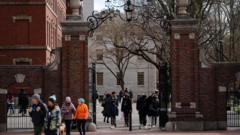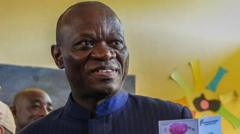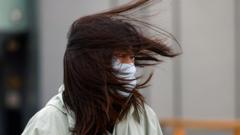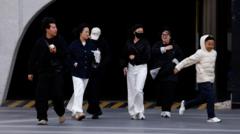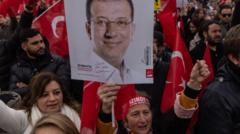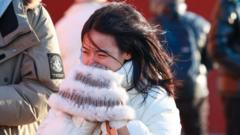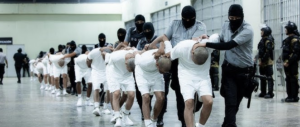The Democratic Party of Hong Kong, facing significant challenges and severe restrictions imposed by the government, has announced plans to dissolve after 31 years of operation. A vote among members will determine the final decision, as the party grapples with a political landscape increasingly hostile to dissent.
Democratic Party of Hong Kong Moves Toward Dissolution in Wake of Political Clampdown
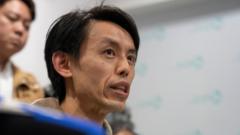
Democratic Party of Hong Kong Moves Toward Dissolution in Wake of Political Clampdown
The Democratic Party, once Hong Kong's leading opposition group, is planning to dissolve amid increasing pressures from China and local authorities.
The leaders of Hong Kong's Democratic Party have signaled intentions to disband the 31-year-old political organization, once the most prominent opposition party in the territory. Party chairman Lo Kin-hei announced the potential dissolution during a late-night press conference, stating that members will vote on the final decision shortly. The Democratic Party has faced mounting difficulties in recent years, particularly following the crackdown on dissent initiated by China after the 2019 protests.
Chinese and Hong Kong officials argue that the measures are necessary for national security. A notable element of this crackdown was the implementation of the "patriots law" in 2021, which fundamentally altered the electoral landscape by ensuring that only individuals deemed loyal to the Chinese Communist Party could be elected as lawmakers or local representatives. This legislation effectively barred the Democratic Party from participating in elections, leading to a significant erosion of its influence.
At the press conference, Lo suggested that the decision to shut down was reflective of the current political climate but refrained from commenting on whether the choice was made under duress. The party has formed a committee to facilitate its dissolution, but any final decision will require the approval of at least 75% of members at an upcoming meeting, the date of which remains undisclosed.
In response, Hong Kong government adviser Regina Ip criticized the Democratic Party for what she described as an anti-China agenda that has alienated its supporters over the years. She suggested that the party had reached a "dead end" following its declining popularity.
Historically, the Democratic Party had a forward-looking stance, participating in direct negotiations with the Chinese government in 2010 to push for democratic reform. However, this led to a divide within the party, as younger members viewed the engagement as a betrayal, resulting in a loss of support.
Despite its storied past, the Democratic Party saw a resurgence following the 2019 local council elections when it secured the most seats during widespread anti-government protests. However, many of its leaders are now embroiled in legal troubles, either imprisoned under the national security law or living in exile. Former legislator Ted Hui, a notable figure within the party, currently resides in Australia, having been charged with national security offenses in Hong Kong.
Further complications arose in December when the Hong Kong government revoked the honorary Justice of the Peace title from Martin Lee, a founding member of the party, after losing a legal appeal related to protests.
The political landscape in Hong Kong continues to evolve, with the future of opposition parties increasingly uncertain amidst a climate of repression and control.





